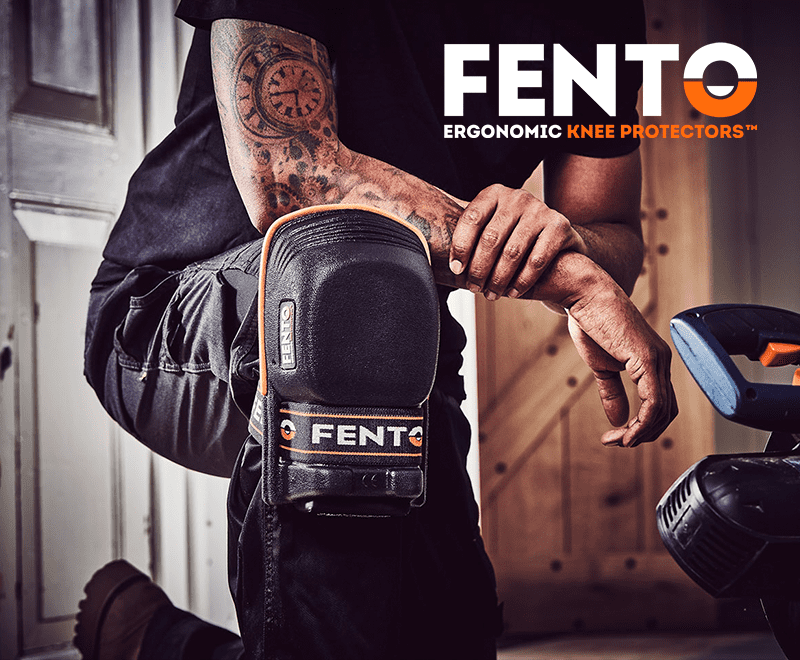When we think of tile manufacturing, most people’s minds will turn immediately to Europe’s de facto industry capitals: Italy and Spain, or perhaps in more recent years, India and China, where a huge proportion of the world’s ceramics and porcelain are produced.
Across the rest of Europe and beyond, however, many other nations maintain robust, vital sectors, where tiles are produced and innovated on at much the same pace as any of the more famous centres.
With one of the most prolific tile manufacturing sectors anywhere in the world, Turkey is, by volume, the eighth largest producer of tiles globally and the third largest in Europe, per data from SERKAP, the Turkish ceramic tile manufacturers association headquartered in Istanbul.
National support
In its own words, “SERKAP’s object may be described as bringing together the manufacturers in ceramic tile sub-sector, to provide guidance to manufacturers and their employees professionally, socially and economically,” the association says, “to create common areas of collaboration for competitive structuring of members under global competitive conditions and to organise joint action for getting synergic results.”
The association lists just under 20 companies as members on its website currently, including many names recognisable in the UK, such as VitrA, Ege, and Bien. It is part of a larger set of organisations within the country known as the Turkish Ceramics Federation (TSF). This parent entity comprises several different associations related to ceramics, including the Ceramics Sanitaryware Manufacturers Association (SERSA), the Ceramics, Glass and Cement Raw Materials Manufacturers Association (SERHAM) and the Turkish Ceramics Society (TSD) among others.
According to the SERKAP: “The installed capacity, which was 255.1 million sqm in 2002 in the ceramic tile industry, where 24 manufacturers operated, rose to 430 million sqm in 2013 with a total of 28 manufacturers. The production volume has risen from 162 million sqm to 330 million sqm, domestic sales from 89 million sqm to 200 million sqm, and exports have gone up from 72.37 million sqm to 88 million sqm.”
The Turkish industry exports to more than 100 countries in 5 continents (according to TurkishCeramics, a separate industry organisation established in 1997, this number is as high as 200 countries). The most important export markets are said to be Germany, Israel, the UK, Canada and the USA. Indeed, as reported by Erdem Çenesiz, chair of the board of directors for TSF, ceramics was designated the country’s most valuable export market for the first half of 2022 by the Export Contribution Index of Turkey.
The nation, which reportedly exports 30% of its production, is the one of the top 4
ceramic tile exporters in the world, only following China, India, Italy, Spain and Iran, per data from Federmacchine (Acimac Research Department). SERKAP members are said to represent some 75% of the nation’s total production capacity and 95% of the industry’s export market.
“Also among SERKAP’s fields of operation are increasing market share and creating new uses by enhancing the effectiveness of the products of the ceramics industry in the national market, to promote and increase the market share of Turkish ceramic ware, to seek solutions to the common problems of members on various topics; to establish institutions, consortiums and societies which will help the scientific, cultural, technological and economic development of the industry, to ensure that the industry takes part in international organisations, to supervise whether the industry’s manufacturing and trade are in conformity with professional ethics and public interest and to help them develop in this regard.”
In practice, the organisation takes a multi-pronged approach to dealing with the above challenges, as laid out in its rather detailed reporting of activities, available online. For example, throughout the period of 2019-2021, during the height of the Covid pandemic, SERKAP worked in tandem with other national organisations, including the Ministry of Health, to assist the sector through the health crisis. The organisation’s secretary general, Mehmet Mercan, participated in various meetings organised by the European Federation of Ceramic Tile Manufacturers, giving the Turkish sector a voice in standards development, regulatory revisions, as well as the European Green Deal.
In addition to TSF, the country’s ceramic sector is served by TurkishCeramics, which focuses primarily on the export market. Among the nearly 30 brands represented by this organisation are NG Kutahya, Ege Seramik and Yurtbay Seramik. Accordingly, the association says, “[it] undertakes many activities to communicate to a global audience, from participating in trade fairs to organising design competitions, hosting exhibitions and trade missions. These events and activities are regularly published in some of the world’s most prestigious design magazines and journals.”
International interest
Consistent with this concerted promotion of Turkish tiles across the globe, as well as its status as one of the industry’s top exporters, companies from the region are a regular and important presence at various trade fairs throughout the year. For example, at last year’s Cersaie exhibition in Bologna, 30 Turkish companies presented their products on the show floor, while the TurkishCeramics organisation itself promoted the brand with 180 taxi advertisements throughout the city as well as airport advertisements. Since then, the association has gone on to have a presence at the Total Solutions Plus fair in California, as well as Ambiente and ISH in Frankfurt, engaging in similar promotional activities.
Turkey also hosts its own large-scale exhibition dedicated to ceramic tiles and bathroom furnishings. Unicera is organised with the help of TSF and takes place at the Istanbul Expo Center in November (this year’s edition will begin on the 6th and end on the 10th). According to last year’s 4
post-show report, the exhibition took place over 100,000sqm of floor space, welcoming more than 100,000 visitors (of whom some 20% were international). Companies from Italy, Spain, India and China, as well as several other nations, exhibited, while visitors came from America, Canada, all over Europe and throughout the Middle East.
Things aren’t all perfect for Turkey on the world stage however. Recently, the nation’s products have been targeted by EU anti-dumping legislation, following an investigation from December 2021. As part of these measures, tiles from both India and Turkey are now subject to anti-dumping duties when being imported into EU nations (although not, as TTA has established, in the UK). These measures are designed to ensure fair competition with the EU’s manufacturers, and are set to last for five years.
In an interview with Seramik Turkiye, a publication produced by TSF, Erdem Çenesiz explained what he views as the sector’s “fragile side”. Echoing what we’ve heard recently from both Italian and Spanish producers, he pointed to energy costs as an immediate concern, however there is also a set of challenges rather more particular to Turkey: “One of the weakest points of it, is high energy costs and together with it the increasing transportation costs due to product weights, the poor quality product image in global market, the foreign-source dependency in machine technology (though this is diminishing after domestic machinery production), the insufficient number of intermediate staff educated in the sector, the inadequate raw material exploration works and the mis-use of raw material.”
Nevertheless, Çenesiz still believes the Turkish ceramic sector has “significant advantages compared to other countries,” citing its “wide product variety and cheap labour opportunities.” Indeed, while the ramifications of the anti-dumping measures are yet to be seen, Turkey’s export market is sitting in a strong place right now, and it’s important to note that its business with the UK, US, and everywhere else outside of Europe will be unaffected by the legislation.
An artistic approach
Beyond the purely commercial, the ceramics sector in Turkey also places a significant value on the artistic potential of the material. According to the TurkishCeramics website, there is considerable government support available to improve : “After the Ceramic Department of the Academy of Fine Arts was established to solve the shortage of qualified personnel in the ceramic industry and to make breakthroughs in the field of contemporary art and industry, the number of ceramic education institutions increased. These education opportunities have increased the knowledge and experience of employees in the sector.”
These investments seem to have paid off, with the organisation claiming that Turkish ceramic products have won more than 300 international design and innovation awards, such as the Red Dot and iF prizes.
Domestically, companies can take part in the Xone Design Awards, a competition aimed to promote designers throughout the country’s ceramic, glass and cement sectors. The contest focuses on environmental sustainability as well as design innovation, and tasks entrants with “considering the opportunities presented by new materials, changing living spaces and needs, and the structure of the industry”.
www.serfed.com








